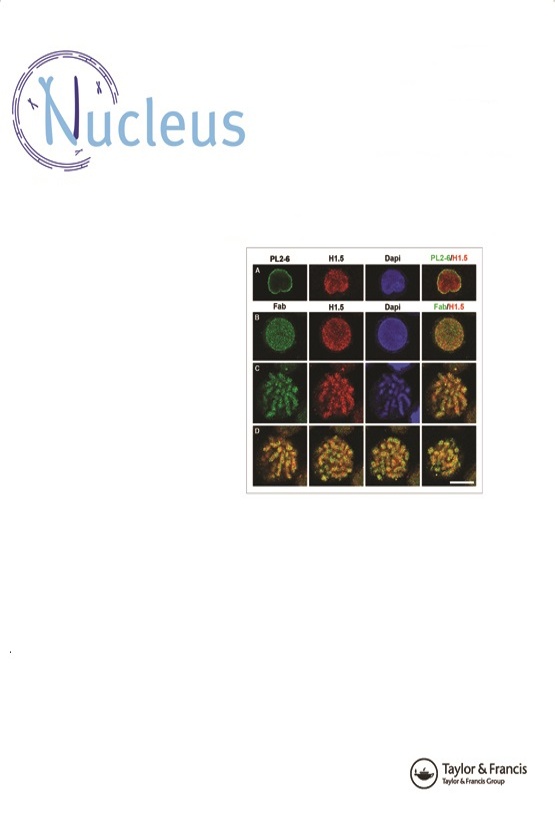Submit a Manuscript to the Journal
Nucleus
For an Article Collection on
Nuclear Dynamics during Development
Manuscript deadline
31 August 2024

Article collection guest advisor(s)
Prof. Kundan Sengupta,
Indian Institute of Science Education and Research (IISER), Pune
Nuclear Dynamics during Development
The nucleus has emerged as one of the most important and exciting hubs that maintains chromatin and preserves genetic and epigenetic organization and activity. With the genome organized as chromosome territories in a non-random manner, nuclear architecture is not just a structural entity but a highly complex macromolecular milieu involving DNA, RNA and proteins – existing as liquid-liquid phase-separated systems.
Each cell type is different and emerges from a complex developmental program with accompanying nuclear organization and functional changes. Remarkably, nuclear organisation changes are transmitted relatively rapidly during cell division, performed with an amazing level of accuracy – central to the perpetuation of life. However, the molecular mechanisms and their dynamics, which ensue in concert with the altered dynamics of nuclear speckles and transcription hubs, remain far from clear.
The nucleus, therefore, is a dynamic cellular organelle, as it adapts to a cell's everchanging metabolic and physiological demands. While organizational principles for nuclear bodies such as the Cajal body, PML, sc35 and the nucleolus continue to be actively researched across paradigms of development and differentiation, their structural organization, initiation and maintenance across eukaryotes from their early to late developmental stages are remarkable aspects of nuclear and cellular dynamics that are yet to be uncovered.
Nuclear bodies, chromatin organizers and transcription factors dynamically associate with or dissociate from DNA, thereby modulating the structural and functional organization of chromatin in the nucleus. In contrast, nuclear lamins and nucleoporins, among others, function as relatively stable landmarks that regulate chromatin organization and gene expression – further modulated by the timely erasure or deposition of active and inactive histone markers that finetune transcription.
This Article Collection invites articles on the organizational and functional features of the nucleus when examined from the prism of nuclear landmarks, nuclear bodies, chromatin territories, chromatin organizers and histone markers when studied in the appropriate biological and physiological context of cellular development and differentiation.
All manuscripts submitted to this Article Collection will undergo desk assessment and peer-review as part of our standard editorial process. Guest Advisors will not be involved in peer-reviewing manuscripts unless they are an existing member of the Editorial Board.
Please review the journal scope and author submission instructions prior to submitting a manuscript.
The deadline for submitting manuscripts is 31th August 2024.
Please contact Menghan Li at [email protected] with any queries regarding this Article Collection.
Article Collection Guest Advisor(s)
Prof. Kundan Sengupta completed his B.Sc and M.Sc in Microbiology at Bangalore University and received his PhD in Molecular Biology from Tata Institute of Fundamental Research (TIFR) Mumbai. He has carried out postdoctoral research at the National Cancer Institute, NIH, USA. He is currently a Professor at the Indian Institute of Science Education and Research (IISER), Pune.
Benefits of publishing open access within Taylor & Francis
Global marketing and publicity, ensuring your research reaches the people you want it to.
Article Collections bring together the latest research on hot topics from influential researchers across the globe.
Rigorous peer review for every open access article.
Rapid online publication allowing you to share your work quickly.
Looking to Publish your Research?
Find out how to publish your research open access with Taylor & Francis Group.
Choose open accessSubmission Instructions
All manuscripts submitted to this Article Collection will undergo desk assessment and peer-review as part of our standard editorial process. Guest Advisors for this collection will not be involved in peer-reviewing manuscripts unless they are an existing member of the Editorial Board. Please review the journal Aims and Scope and author submission instructions prior to submitting a manuscript.